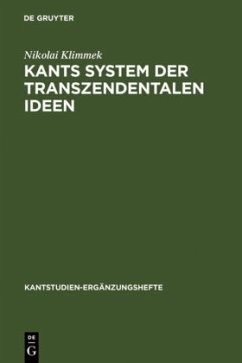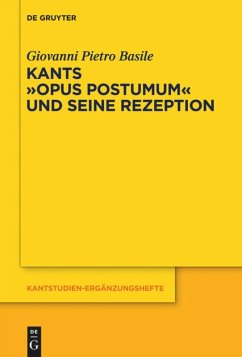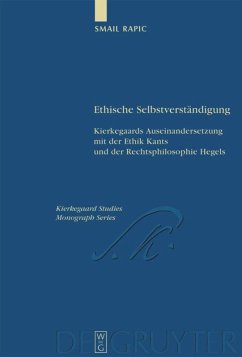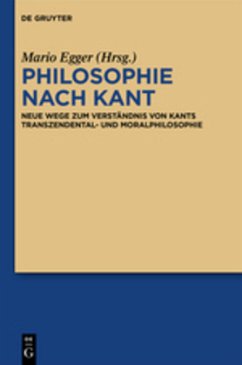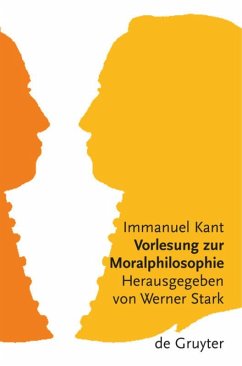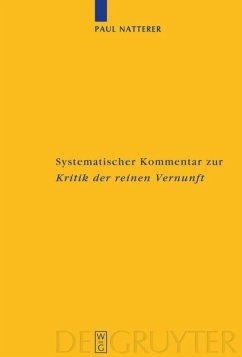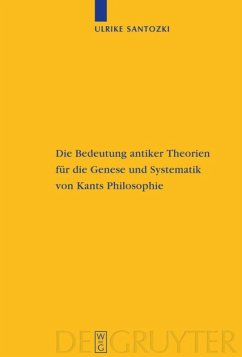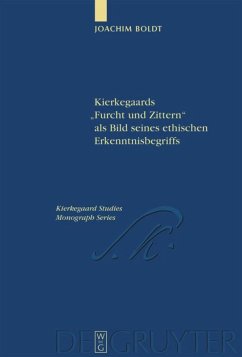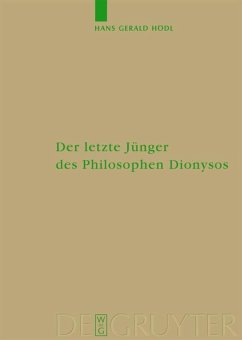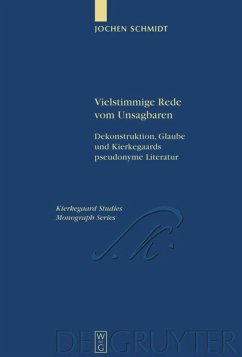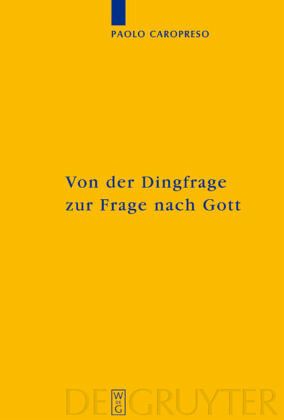
Von der Dingfrage zur Frage nach Gott
Zum eigentlichen Ursprung von Religiosität in Kants Transzendentalphilosophie

PAYBACK Punkte
0 °P sammeln!
In contrast to the customary interpretation that the religious question about whether there is a God does not arise for Kant until he turns to moral philosophy, the reconstruction of the basic structures of Kantâ??s theoretical philosophy shows that the question about God already emanates from the theory of knowledge and from ontology.
According to Kant, one must consider the limits of knowledge in order to create room for faith. It is through the contemplation of these limits, that is, ultimately through the contemplation of the self as a knowing subject, that religious feeling arises and that the human and divine incarnation correlate.
According to Kant, one must consider the limits of knowledge in order to create room for faith. It is through the contemplation of these limits, that is, ultimately through the contemplation of the self as a knowing subject, that religious feeling arises and that the human and divine incarnation correlate.
Entgegen der üblichen Kantauslegung, die Frage nach Gott stelle sich für Kant erst innerhalb der Moralphilosophie, zeigt die Rekonstruktion der Grundstrukturen von Kants Theoretischer Philosophie, dass diese Frage sich bereits aus der Erkenntnistheorie und Ontologie ergibt.
Man habe nämlich - so Kant - die Grenzen des Wissens zu bedenken, um dem Glauben Platz zu schaffen. Durch die Reflexion auf diese Grenzen, und das heißt letztlich: durch Reflexion auf sich selbst als erkennendes Subjekt, entspringt das religiöse Gefühl, so dass Menschwerdung und Gottwerdung miteinander korrelieren.
Man habe nämlich - so Kant - die Grenzen des Wissens zu bedenken, um dem Glauben Platz zu schaffen. Durch die Reflexion auf diese Grenzen, und das heißt letztlich: durch Reflexion auf sich selbst als erkennendes Subjekt, entspringt das religiöse Gefühl, so dass Menschwerdung und Gottwerdung miteinander korrelieren.




